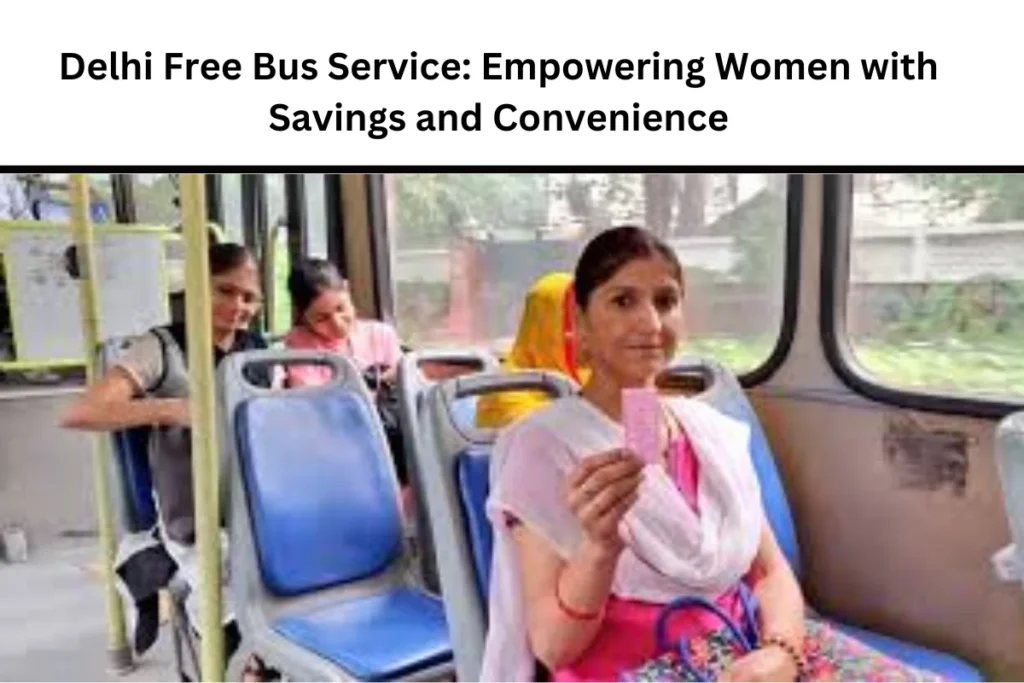
Delhi Free Bus Service: Empowering Women with Savings and Convenience
The AAP government’s free bus service in Delhi has made life easier for women. They no longer need to spend money on commuting to work, shopping, or visiting family. Women say they save a significant amount of money thanks to the service. The Pink Ticket has improved convenience for women and helped transform public transport by removing permit fees.
How Much Can Women Save Each Year?
Using the free bus service, women are saving money that would otherwise go toward auto-rickshaws, taxis, or metro rides. Estimates show that a woman can save up to ₹1.24 lakh annually.
Take Gurmeet Kaur, a nurse. She used to travel by auto, but now she uses the free bus. She saves ₹400 a day. Over 26 workdays, that’s ₹10,400 a month, or ₹1,24,800 a year. Lajwanti, a clerk, also saved by switching to the free bus. She used to spend ₹120 a day on the metro, but now saves ₹37,442 annually. Lajwanti is happy with the extra savings.
More Savings for Women in Different Jobs
Manvi, an architect, used to take the metro or auto. Now, she saves almost ₹96,000 a year by using the free bus. These savings vary by profession, but all women benefit. The free bus service has had a positive financial impact on women from different backgrounds.
Pink Ticket Sales Reach ₹1500 Crore
Delhi’s statistics show that 150 million Pink Tickets were sold in the last five years. This means the government provided ₹1500 crore in subsidies. This money has helped women directly, saving them a lot of money. A Greenpeace survey found that 75% of women think their monthly transport costs have dropped. Of those, 55% use their savings for household expenses, while half set aside money for emergencies.
Mohalla Buses Bring More Convenience
The free bus service has also made travel safer for women. Still, some women have to walk long distances after getting off the bus, which can be unsafe, especially at odd hours. To solve this, the government introduced Mohalla buses. More than 140 Mohalla buses are now running. Each bus carries 36 passengers, and together, they can transport 5,040 people per trip. They can serve up to 10,080 passengers daily.
Public Transport Drivers Also Save Money
Public transport operators, especially auto drivers, have saved a lot too. The fee for location tracking devices, which was ₹1,416 annually, has been waived. In 2019, the government removed the ₹200 fitness fee for auto drivers and reduced late fees. Registration fees dropped from ₹1,000 to ₹300, and duplicate RC fees went down from ₹500 to ₹150. Other fees, like the fitness certificate cost, were also reduced. These savings add up to over ₹5,500 each year. Over five years, auto drivers have saved ₹27,500.
Delhi’s transportation policy has helped women, public transport operators, and the entire city. It has brought financial benefits and improved the quality of life for many people.
for more updates follow ANN MEDIA on facebook , X , Instagram and Linkedin







